Software engineering
-
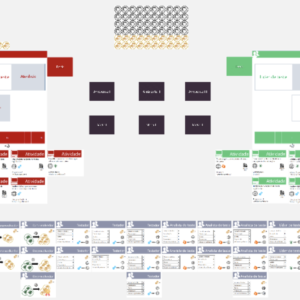
ProTesters: a board game for teaching the testing process
Moreira, G. G., Reinehr, S., Malucelli, A., & Van Amstel, F. (2022, November). ProTesters: a board game for teaching the testing process. In Proceedings of the XXI Brazilian Symposium on Software Quality (SBQS ’22), November 07–10, 2022, Curitiba, Brazil. ACM, New York, NY, USA, 9 pages. https://doi.org/10.1145/3571473.3571503 - Jan 28, 2023 -
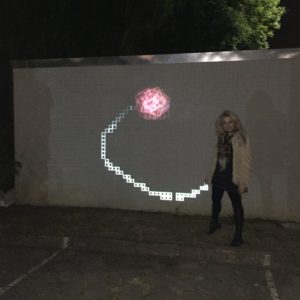 Creative coding can be described as a programming style that seeks to express values, feelings, meanings, and ideas through software code. For example, I designed the Coralizando book cover with a Processing script to express the plurality of the book contributors in a way I wouldn’t be able with a regular drawing. This style is […] - Jun 11, 2020
Creative coding can be described as a programming style that seeks to express values, feelings, meanings, and ideas through software code. For example, I designed the Coralizando book cover with a Processing script to express the plurality of the book contributors in a way I wouldn’t be able with a regular drawing. This style is […] - Jun 11, 2020 -
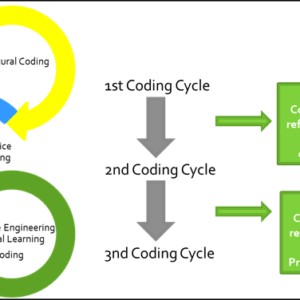
Reflective Practice in software development studios: findings from an ethnographic study
Dors, Tania M.; van Amstel, Frederick M.C.; Binder, Fabio; Reinehr, Sheila dos Santos; Malucelli, Andreia. (2020). Reflective Practice in Software Development Studio: findings from an ethnographic study. In: Proceeding of the 32nd Conference on Software Engineering Education and Training (CSEE&T), Munich. https://doi.org/10.1109/CSEET49119.2020.9206217 - May 19, 2020 -
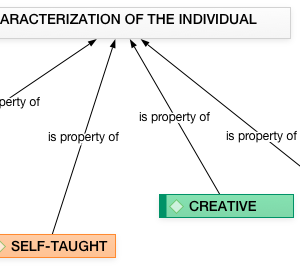 Harmuch Neto, Elias; van Amstel, Frederick M.C.; Binder, Fabio; Reinehr, Sheila dos Santos; Malucelli, Andreia. (2020). Trajectory and traits of devigners: a qualitative study about transdisciplinarity in a software studio. In: Proceeding of the Conference on Software Engineering Education and Training (CSEE&T), Munich. https://doi.org/10.1109/CSEET49119.2020.9206180 - May 19, 2020
Harmuch Neto, Elias; van Amstel, Frederick M.C.; Binder, Fabio; Reinehr, Sheila dos Santos; Malucelli, Andreia. (2020). Trajectory and traits of devigners: a qualitative study about transdisciplinarity in a software studio. In: Proceeding of the Conference on Software Engineering Education and Training (CSEE&T), Munich. https://doi.org/10.1109/CSEET49119.2020.9206180 - May 19, 2020 -
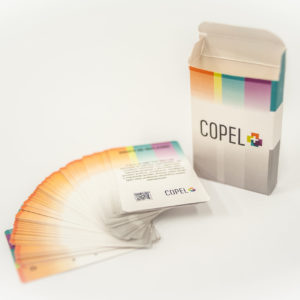 Copel+ is an open innovation platform designed for a utility company in Brazil as part of a research project that focused on organizational learning. The company had just started the transition to smart grids and realized that it was necessary to nurture the regional entrepreneurial ecosystem to populate the grid. The platform sponsors believed that […] - Mar 24, 2020
Copel+ is an open innovation platform designed for a utility company in Brazil as part of a research project that focused on organizational learning. The company had just started the transition to smart grids and realized that it was necessary to nurture the regional entrepreneurial ecosystem to populate the grid. The platform sponsors believed that […] - Mar 24, 2020 -
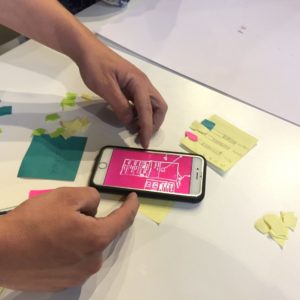 Since 2013, Apple has a partnership with several Brazilian Universities to offer an educational program to attract and train new software developers in their mobile application ecosystem. The program is called Apple Developer Academy and it includes everything a newcomer needs to develop a new app. The program is customized for each partnership to better […] - Mar 28, 2019
Since 2013, Apple has a partnership with several Brazilian Universities to offer an educational program to attract and train new software developers in their mobile application ecosystem. The program is called Apple Developer Academy and it includes everything a newcomer needs to develop a new app. The program is customized for each partnership to better […] - Mar 28, 2019 -
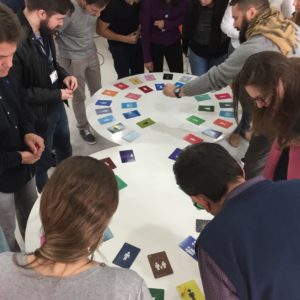 Design patterns deconstructs the myth that design projects are created by a single consciousness, the lonely designer. Every project, be that developed by a single designer or by a design team, reproduces common patterns that society at large cultivates. Card decks collect and organize design patterns with common problems and solutions in a certain design […] - Nov 22, 2018
Design patterns deconstructs the myth that design projects are created by a single consciousness, the lonely designer. Every project, be that developed by a single designer or by a design team, reproduces common patterns that society at large cultivates. Card decks collect and organize design patterns with common problems and solutions in a certain design […] - Nov 22, 2018 -
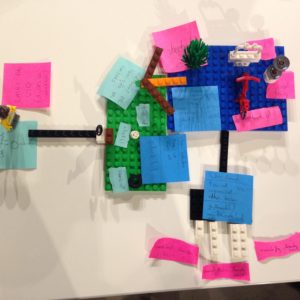 Unified Modeling Language (UML) is a set of standard diagrams and notations for creating software. We created at PUPCR a physical version of these diagrams with Lego to enable the participation of designers, clients, and users in software architecture and modeling activities. The concrete representations help the participants understand and make good use of software […] - Nov 1, 2018
Unified Modeling Language (UML) is a set of standard diagrams and notations for creating software. We created at PUPCR a physical version of these diagrams with Lego to enable the participation of designers, clients, and users in software architecture and modeling activities. The concrete representations help the participants understand and make good use of software […] - Nov 1, 2018 -
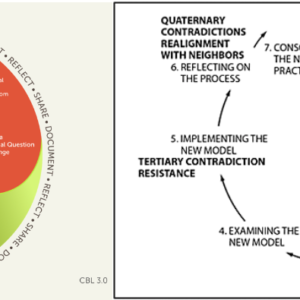
Expansive Design and Learning in a Software Studio
Unfinished post-doctoral research project at Post-Graduate Program in Informatics at PUCPR. Software studio is a pedagogical approach for learning while doing it in practice Interaction Design (CULÉN et al, 2014; BINDER et al, 2009; REIMER, 2003) as well as Software Engineering (HAZZAN, 2002; KUHN, 1998; TOMAYKO, 1996; TOMAYKO, 1991). Inspired by the way architects learn […] - Oct 31, 2018 -
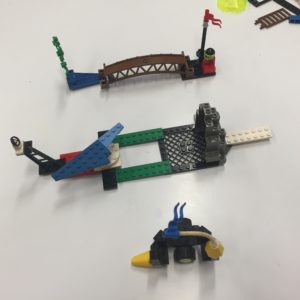 32 hours – Graduate course in Informatics program at PPGIA/PUCPR. This course introduces Human-Computer Interaction as a field for interdisciplinary research related to Computing. The main concern of this field is the behavior of humans when interacting with the computer and when interacting with other humans through the computer. Issues such as usability, accessibility, communication, […] - Aug 15, 2018
32 hours – Graduate course in Informatics program at PPGIA/PUCPR. This course introduces Human-Computer Interaction as a field for interdisciplinary research related to Computing. The main concern of this field is the behavior of humans when interacting with the computer and when interacting with other humans through the computer. Issues such as usability, accessibility, communication, […] - Aug 15, 2018 -
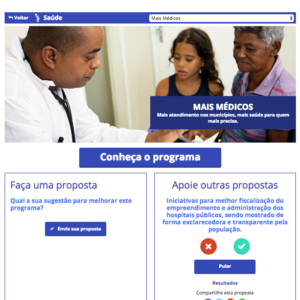
Dialoga app and Social Participation Living Lab (2015)
Brazil former president Dilma Rousseff wanted to improve the participation of society in the decisions of the federal government and ordered the creation of a Social Participation Secretary at the beginning of 2015. By that time I just returned to Brazil after my four years as a PhD student in the Netherlands. Ms. Rousseff officers asked my help […] - Aug 13, 2015 -
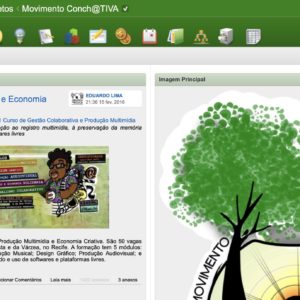 Corais was launched in 2011 as the open innovation platform of Faber-Ludens Interaction Design Institute. Since 2012, it became an independent cooperative platform for cultural producers in Brazil, maintained by Instituto Ambiente em Movimento and developed by Frederick van Amstel as an outreach activity of his academic work. An open design platform Development forked from […] - Nov 14, 2011
Corais was launched in 2011 as the open innovation platform of Faber-Ludens Interaction Design Institute. Since 2012, it became an independent cooperative platform for cultural producers in Brazil, maintained by Instituto Ambiente em Movimento and developed by Frederick van Amstel as an outreach activity of his academic work. An open design platform Development forked from […] - Nov 14, 2011